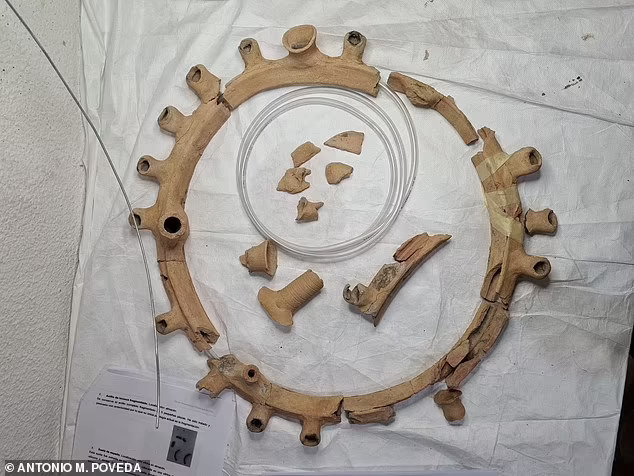2,000-Year-Old Roman-Era Chandelier is One-of-a-Kind!
A Roman chandelier, which is believed to be the last one remaining, has been reconstructed by Spanish archaeologists after they discovered it among the ruins of a workshop.
The round lamp which was used during the Roman Empire to light up large spaces has a diameter of half a metre and has spots for 32 candles or fuses.
The rare artefact, which has been lovingly restored by local art teacher Eva Maria Mendiola, is on display at the Elda Museum in Alicante, Spain.
It is believed the light, from the 1st Century AD, was made by a potter named Lucius Eros, The Times reports.
According to El Pais, Augustus and Tiberius were ruling while Eros was alive and he used to engrave his name on the moulds he made.


His branding made it possible to identify the craftsman that had originally made the precious item which was found during an archaeological dig.
Another four lamp moulds were found at the archaeological site Elo-Monastil, which is where Eros is believed to have had his workshop and several kilns.
His workshop was first discovered in 1989 before further kilns were found in 2009 and 2010.

Speaking in 1989, professor of Ancient History at the University of Alcalá de Henares Antonio M. Poveda explained the chandeliers of this style would have taken a lot of expertise to make.
As a result, they were quite rare and were only made to order for wealthier people in other cities, including what is now known as Elche and Alicante, with large rooms to light up.
This latest discovery is the first of its kind to have been preserved.
The lights worked by poking fuse through holes in the multiple tubes and oil was piped in to keep it alight.
They were soon replaced by lamps made of metal materials.
